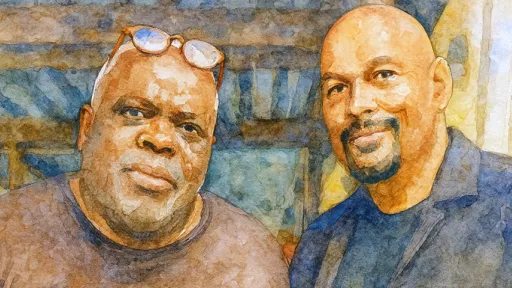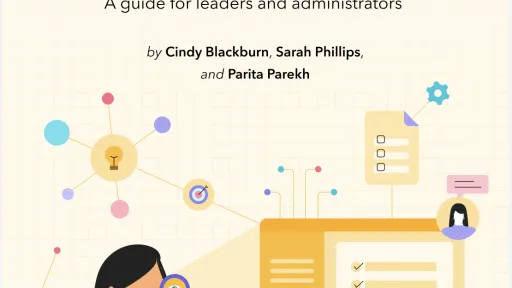The Fork Before Us
Independent schools stand at a fork in the road. On one side are those doubling down on tradition—clinging to formulas that have served them well for decades, avoiding innovation, and treating AI as a threat to be managed rather than a tool to be explored. On the other side are schools fully embracing disruption—models like Khan Lab or Alpha School that lean into algorithmic learning, personalized dashboards, and machine-driven efficiency.
But there is another path. It’s one most familiar to smaller, more nimble schools—the ones that thrive not because of scale or resources, but because of relationships. This path doesn’t deny AI’s disruptive potential, nor does it hand over the keys to the machines. Instead, it uses technology to deepen the progressive formulas that have always been our bread and butter: dialogue, belonging, whole-student learning.
Why Relationships Are Still the Core
For me, this truth came long before ChatGPT entered our classrooms. It came in the presence of a teacher who changed my life—my high school teacher, Tommie Lindsey.
Mr. Lindsey didn’t just teach speech and debate; he created spaces of safety and belonging where voice mattered. He showed me what it meant to be fed, literally and figuratively, as a student navigating homelessness. His classroom was a lab of humanity—where listening was justice, failure was fuel, and the story was the argument.
When I lead at Dunn School today, that’s the legacy I carry forward. The question is no longer whether AI will change education—it already has. The question is whether we will let it crowd out humanity, or whether we will use it to buy back the time and space to be more human with our students.
A Third Path: AI in Service of Humanity
What does this look like in practice?
Assessment as Liberation: Let AI handle the mechanics of grading drafts, freeing educators to focus on mentoring voice, style, and critical thinking.
Space for Listening: When tools transcribe and organize, we can spend less time typing and more time holding circles where students process pain, disagreement, and identity.
Storytelling Over Simulation: While AI can generate a passable essay, it cannot generate your story. Schools must lean into assignments and curricula that privilege lived experience over manufactured prose.
This is the opportunity for relational schools: to be laboratories not just of technology, but of humanity in a technological age.
Why Small Schools Are Poised to Lead
Larger institutions often chase scale. They either entrench what they’ve always done or pivot dramatically toward efficiency. But small schools can do what big ones often can’t: experiment nimbly, integrate quickly, and model what it means to humanize technology.
We don’t need to be afraid of AI. Nor do we need to hand our students over to it wholesale. Instead, we can model what it means to use new tools with discernment—tools in service of relationships, not in replacement of them.
The Subtle Truth
I’ve written more about this journey in my recent book, Speaking Truth, Teaching Humanity, where I trace the lessons Lindsey instilled in me and how they’ve shaped my leadership in the age of AI. At its core, the book is about one thing: authentic humanity matters more now than ever.
And that’s the path I believe independent schools must choose at this fork in the road. Not fear. Not blind disruption. But discernment—the courage to use AI to give us more time to do what has always mattered most: teaching, listening, and leading with humanity.



